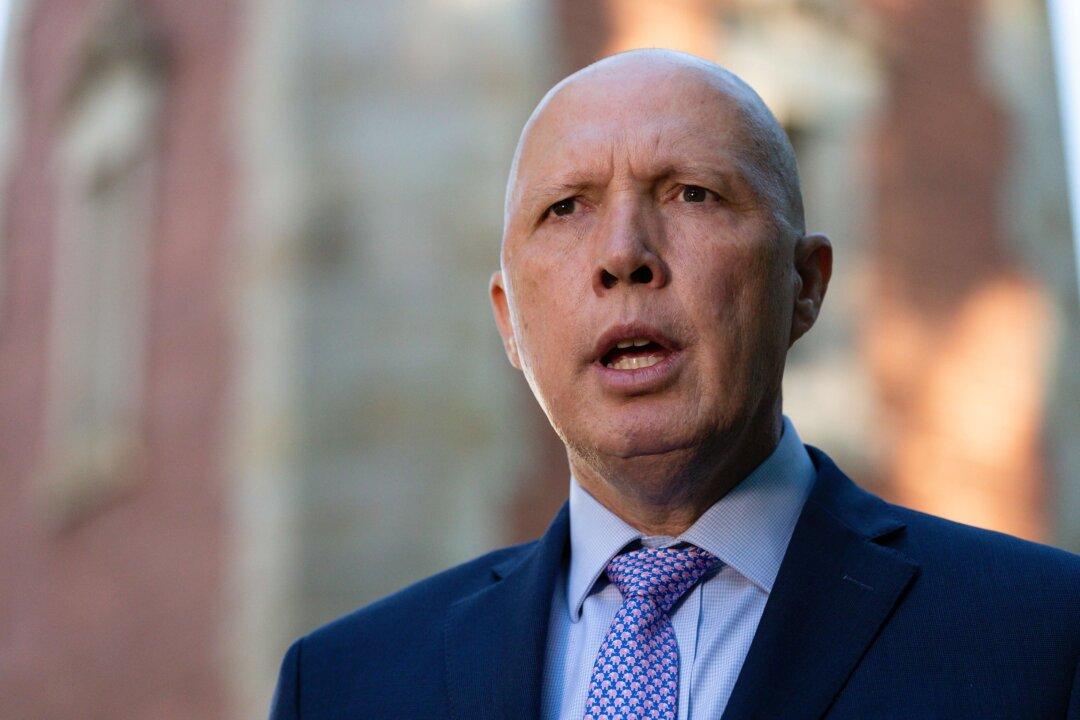Australian Defence Minister Peter Dutton has defended his comments about potential conflict with China in Taiwan after criticism by both Chinese Communist Party (CCP) spokesman Zhao Lijian and Labor foreign affairs spokesperson Senator Penny Wong.
“This is the propaganda of the Communist Party,” Dutton told Sky News Australia Tuesday, referring to Zhao’s comments that the defence minister was serving “selfish political gains.”





